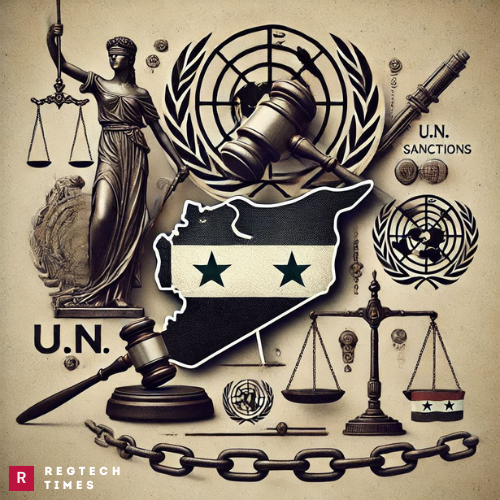The United Nations has imposed sanctions on the Syrian rebel group Hayat Tahrir al-Sham (HTS) and its leader for many years. These sanctions have made it harder for HTS to carry out its activities, but the possibility of them being lifted is a topic of debate. The group, formerly known as the Nusra Front, was initially linked to al-Qaeda, which is why the sanctions were put in place.
Why Are HTS and Its Leader Sanctioned?
Hayat Tahrir al-Sham (HTS) was formed in 2017, but its roots go back to 2014, when it was known as the Nusra Front. Nusra Front was an extremist group that operated in Syria and was closely associated with al-Qaeda, the notorious terrorist group behind the September 11 attacks. Because of this connection, the United Nations placed Nusra Front on its sanctions list. The group was accused of being involved in planning and carrying out violent attacks, financing terrorist activities, and recruiting people to join al-Qaeda.
In 2017, Nusra Front changed its name to Hayat Tahrir al-Sham, or HTS, in an effort to distance itself from its past associations with al-Qaeda. Even though HTS presented itself as a separate entity, many experts and diplomats believe that it still operates with similar goals and tactics. This is why HTS and its leader, Abu Mohammed al-Golani, remain under U.N. sanctions.
The sanctions are serious. They freeze assets, ban travel, and prevent arms from being sent to the group. In other words, HTS and its leaders cannot access money from international banks, they are not allowed to travel outside the countries that control them, and they cannot legally acquire weapons. These measures are meant to limit the group’s ability to carry out violent actions.
Can the U.N. Remove Sanctions on HTS?
While it is clear that HTS and its leader are under sanctions, the question remains: can these sanctions ever be removed? The process is not easy and involves several steps.
First, a country in the United Nations can propose lifting the sanctions. This could be any of the 193 member states of the U.N. If a country wants to remove the sanctions, they must ask the Security Council committee that handles sanctions related to al-Qaeda and the Islamic State. However, this committee only acts by consensus, meaning that all 15 members of the council must agree on the decision.
US Sanctions Fawaz al-Akhras, Assad’s Father-in-law, Amid Syria Crisis
If the sanctions were initially proposed by a country, they could be removed automatically after 60 days, unless there is strong opposition. However, if another country disagrees with the removal, they can take the matter to the full Security Council for a vote. If there is no agreement or if the committee believes the sanctions should remain, the process could take much longer.
There is also another way for HTS or its leaders to ask for sanctions to be removed. A person or group under sanctions can appeal to an independent ombudsman. This ombudsman reviews the situation and makes a recommendation. If the ombudsman suggests lifting the sanctions, the U.N. committee may act on that suggestion. But this process can take up to nine months, or even longer if the committee doesn’t agree.
Currently, there is no clear indication of any country pushing to remove the sanctions on HTS. The decision to lift sanctions is complicated because of HTS’s history with al-Qaeda and its continued involvement in the Syrian conflict. Even if HTS presents itself as a separate group now, the international community remains concerned about its past activities and its ties to extremist violence.
The Current Situation
As it stands, there are no ongoing discussions about lifting the U.N. sanctions on HTS. Despite this, the sanctions do not completely prevent countries or organizations from communicating with the group. They are not an absolute barrier to talks or negotiations, but they do make it harder for HTS to operate freely. The sanctions aim to restrict the group’s ability to finance, organize, and carry out attacks. They serve as a pressure tool against a group that is seen as a significant threat to peace and stability in the region.
However, sanctions are not forever. They can be reviewed and potentially lifted, depending on changes in the group’s behavior or international politics. For now, HTS remains under U.N. sanctions, and there are no clear signs that they will be removed anytime soon. The future of these sanctions will depend on a variety of factors, including the group’s actions, the political interests of different countries, and the broader situation in Syria.


